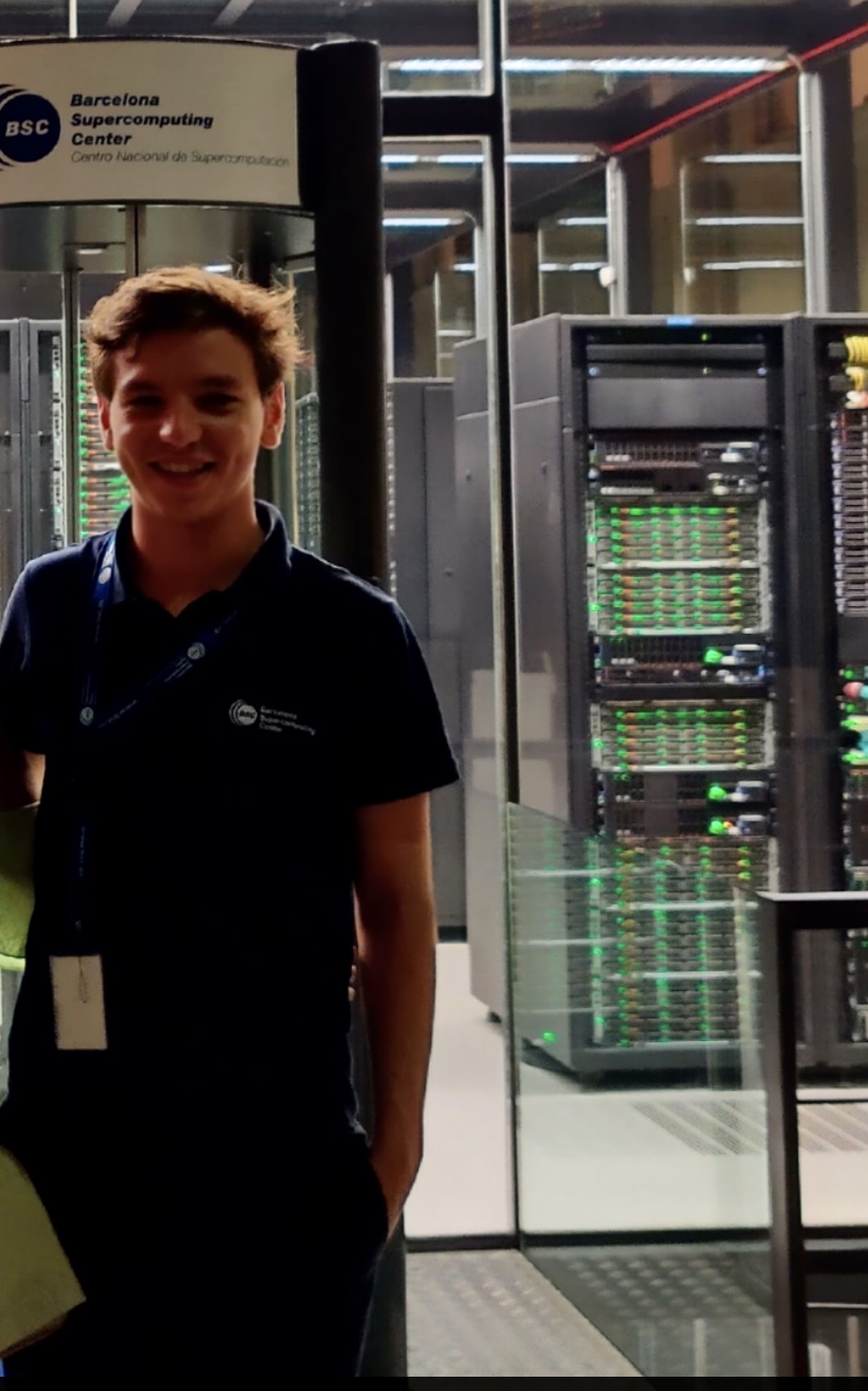Miguel de Oliveira Guerreiro, from Volcanic Ash to HPC.


Who am I?
Hello there! I am Miguel de Oliveira Guerreiro and I come from Lisbon, Portugal. I am currently a Lead Software Engineer and System Architect at OutSystems, a researcher at the Distributed Systems group from INESC-ID, Instituto Superior Técnico and a Visiting Researcher at the Workflows and Distributed Computing Group at the Barcelona Supercomputing Center (Computer Sciences Dept). I’ve graduated in Computer Science and Engineering from the Universidade Nova de Lisboa and the Universitat Autònoma de Barcelona. I am currently enrolled in a MSc in Computer Science at Instituto Superior Técnico with a Major in Distributed Systems.
My main research interests focus on dependable fine-grained distributed systems, fault-tolerance, efficient distributed data storage and large-scale geo-replicated systems.
I have also worked in HPC using tools such as CUDA, OpenMP and MPI, Memkind for the optimization of computational models for natural hazards risk analysis at the HPC Software Engineering Group, also at the Barcelona Supercomputing Center.
Feel free to follow the links below to know more about me and my work:
https://www.bsc.es/de-oliveira-guerreiro-miguel
http://web.tecnico.ulisboa.pt/oliveira.guerreiro/
https://www.linkedin.com/in/migueldeoliveiraguerreiro/
HPC Journey
My first contact with HPC was in 2019, when I left Portugal and moved to Barcelona to work as a researcher at the Barcelona Supercomputing Center. Professor Jordi Pons from the UAB and Dr Mauricio Hanzich from the BSC allowed me to take advantage of this huge opportunity. I started working as a research intern at the HPC Software Engineering Group developing the core of an operational system used to forecast volcanic ash dispersion in real-time. I never thought I would learn so much about volcanos while coding in C++! Since then, I’ve participated in several PRACE trainings as well as some HPC Summer Schools such as PUMPS+AI, etc. I’ve been focusing my research in cloud computing and large-scale distributed systems, however, I still keep my big passion about HPC and some of the knowledge I’ve acquired in this topic allows me to provide better insights when it comes to performance analysis and design for distributed systems.
I still remember the day I’ve seen MareNostrum 4 for the first time… really impressive!
Why SoHPC?
My motivation to join SoHPC was huge since I’ve read about the programme. The opportunity to work with institutions such as CERN, SURFSara, BSC, etc had huge impact in my decision. On top of that, I believe that the contents provided at the training week are of extreme importance nowadays for one that is developing work in big data, large-scale systems, cloud computing or HPC. I absolutely endorse and support this kind of initiatives to promote cutting-edge research and development among students and the community of future scientists.
I’ve applied to this programme with my friend and colleague João Guerreiro, Physics Engineer. Although we are working in different project, we’ve been sharing the enthusiasm of being part of this course and also knowledge about the concepts learned.
I will be working alongside María Menéndez Herrero in Benchmarking HEP workloads from CERN in different HPC Facilities. The idea, is to understand how the High-Energy Physics workloads run in different types of hardware (CPUs/ GPGPUs) while containerised and add more of those workflows as well to the project.
Importance of HPC
HPC plays a determinant role on how science is evolving nowadays. Some mathematical and physical models just require too much computational power to provide outputs in a useful time-window if executed in regular computers. High-end clusters allow scientists to run highly complex models, and code them in a scalable and efficient way so that the computational dimension of the problems doesn’t limit the ability to perform research on such topics.
It is an honour and a pleasure to be part of something like this. Wish you all a great Summer of HPC. Hopefully by the end of the summer you will be able to surf the waves of supercomputing with way more skill and comfort.
Cheers!
Miguel

Leave a Reply